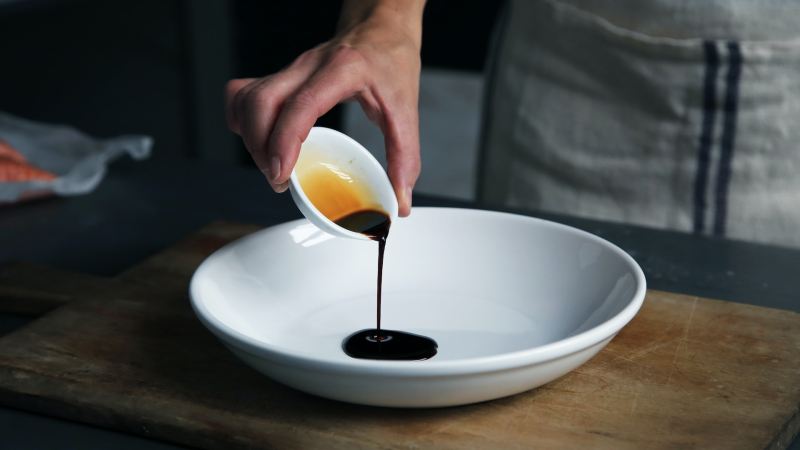The first time I marinated a steak, I had no clue what I was doing — I just dumped soy sauce, lime juice, and whatever spices I could find into a Ziploc, threw in the meat, and hoped for everything to work itself out. In the end, it was … fine. Not great. Definitely not terrible. But it left me wondering: Should steaks be marinated? I wasn’t even sure I noticed that much of a difference, anyway.
Since then, I’ve grilled my way through dozens of steaks, both marinated and not, and I can tell you this: It all depends. It depends on the cut, on the method, and on what you want out of your steak. That’s why it’s really beneficial to know which cuts truly benefit from a marinade, and which are going to be juicy enough to hold their own.
What a marinade can (and can’t) do

Marinades are meant to do two things — infuse flavor and tenderize. But spoiler alert: They’re better at one than the other. A good marinade will add surface flavor, and the acid and spices coat the outer layer of the steak. It also introduces new dimensions, such as sweet, savory, spicy, or even smoky; it’s all fair game and totally achievable with the right ingredients. A solid marinade helps leaner cuts stay juicy, which is especially helpful for a flank or skirt steak.
What you won’t get from your marinade is a solution that deeply tenderizes your steak. Despite what you may have heard, marinades don’t magically make a tough cut buttery soft. Acid can actually make meat mushy if overdone. A marinade also doesn’t penetrate deeply since the flavor mostly stays on top; don’t expect your marinade to soak through like a sponge.
The best cuts to marinate

Some steaks are born ready to eat, and some others need a little TLC to reach their full potential.
Ideal for marinating:
- Flank steak – Naturally tough but flavorful, and benefits hugely from a good marinade.
- Skirt steak – Similar to flank, but with a looser grain that grabs flavor well.
- Sirloin – Lean and affordable, it picks up marinade nicely without breaking the bank.
- Round steak – Economical but firm, this cut becomes more enjoyable with a boost.
Skip the marinade:
- Ribeye – It’s already rich and fatty. A marinade just gets in the way.
- Filet mignon – Super tender already. Save the marinade and enjoy it au naturel.
- New York strip – Can go either way, but generally better off with just seasoning.
What goes into a great marinade?

You can’t just toss in ketchup and hope for the best (although, weirdly, some people do). A great marinade has balance and purpose; the four essential elements are acid, oil, salt, and a kick of flavor. You could even make an alcohol-based marinade using classic cocktails.
- Acid – Citrus juice, vinegar, or yogurt help break down muscle fibers (a little).
- Oil – Carries fat-soluble flavors and keeps meat moist.
- Salt – Essential for drawing flavor into the meat and enhancing juiciness.
- Flavor component – Garlic, soy sauce, herbs, mustard, chili flakes — this is where you have fun.
For a simple and tasty marinade, try olive oil, lime juice, garlic, cumin, and a little soy. Let it ride for a few hours and you’re good to go. Still not sure what a great marinade actually looks like in action? Let Gordon Ramsay show you how it’s done. In classic Ramsay fashion, he keeps it bold, simple, and totally doable … no fuss, just flavor. It’s the perfect visual crash course on how to balance acid, aromatics, and oil without turning your steak into a science experiment.
How long should you marinate steak?

More isn’t always better. In fact, overmarinating can ruin a good cut. Don’t let your marinade stay on overnight, unless it’s mild. Otherwise, too much acid gives you mushy meat. And always marinate in the fridge, or you’re inviting bacteria to the party.
- Thin cuts (skirt, flank): 2-4 hours is plenty
- Thicker cuts (sirloin, top round): 6-8 hours
Should you salt steak before or after marinating?

This is the eternal question. The short answer is: Before, if you’re dry-brining and after, if your marinade is already salty. For dry-brine lovers, salt the meat separately, let it sit for 30-60 minutes, then rinse and pat dry before marinating. If you’re using salty marinades (soy sauce, Worcestershire), no extra salt is needed. Unsalted marinades require just a pinch of salt before cooking. Just don’t double salt or forget it entirely because either way, you’ll regret it.
The verdict: Should steaks be marinated?

It’s not a hard yes or no — it’s a “depends.” Some steaks benefit big time from a marinade, others just want a little salt and fire. If you’re working with tougher cuts or looking to infuse flavor, go for it. Sometimes, simplicity wins. If you’ve got a beautiful, marbled steak, a quick dry rub or basic seasoning will let the beef shine.
Go marinade free when you’re grilling high-quality cuts, you want a crisp, flavorful sear, or you don’t have time to wait. That said, if you’re working with budget-friendly cuts or going for a specific flavor profile (Korean, Southwest, etc.), a marinade can be your best friend.




